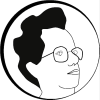
Self-identity of hearing impaired peopleIntroductionDuring the 18th International Congress on Education of the Deaf, one of the lectures discussed the subject of self-identity of deaf people. This article discusses te subject of self-identity of deaf people from the perspective of a participant of the DEAF-L list. Lecture summaryDuring the 18th International Congress on Education of the Deaf, the results of a research by Yael Bat-Chava and Kirstin Lindermayer were presented. The researchers found that there are actually four groups of deaf people as follows:
The lecturers also remind us that a person would stay associated with a group as long as the group contributes to him pride in his identity. Typical DEAF-L arguments made by those kinds of peopleIn the context of DEAF-L discussions, I'd roughly characterize the above groups as having the following attitudes:
Your point of view is incomprehensible by meSeveral of the arguments on DEAF-L are between people from different camps. They often do not even conceive of the possibility of holding any point of view different from their own. Thus, deaf people with Hearing Identity - do not understand how Deaf people can ever be proud of their identity as Deaf. They do not conceive of people succeeding without the benefit of speech and lipreading. Biculturals believe that the attitude of Deaf Power people toward CI is too extremist but they usually keep silent about this. Deaf Power people do not understand how Hearing Identity people can live with and accept the fact of their being deaf, yet not draw the conclusion of adopting Deaf Culture. They do not understand how Hearing Identity people can willingly submit to endless hours of speech therapy, try to fix their ears by means of cochlear implants, and mix with normally hearing people in social situations. Attitude toward Deaf CultureAnother point of misunderstanding is the attitude toward Deaf Culture. Hearing Identity people think that for one to be proud of being Deaf is like being proud of one's loss of limb or one's diabetes. After lots of arguments, they can dimly conceive of Deaf Culture as sort of support group for people of that particular disability. Deaf Power people see Deaf Culture as encompassing companionship, folklore, art, common history. They do not commiserate about their lives as the screwed up lives of hearing impaired people. They do talk about specific difficulties they encounter - but on the same basis as hearing people discussing the hassles they had in this shop or with that IRS auditor or whatever. For them Deaf Culture is not a support group. It is a whole world in which they live and which is fully accessible to them. Biculturals see the limits of the Deaf Culture (otherwise why bother with Hearing Culture at all?) but wish to expand Deaf Culture and improve the role of the Deaf, so that there will be less need for Hearing Culture. Last update date: 2005 Dec 2 |
DonationDid this Web site help you? If yes, you may want to consider making a donation to me. When making a donation, please tell me what additional information could I add to the Web site, to make it even more helpful for you and people like you. |